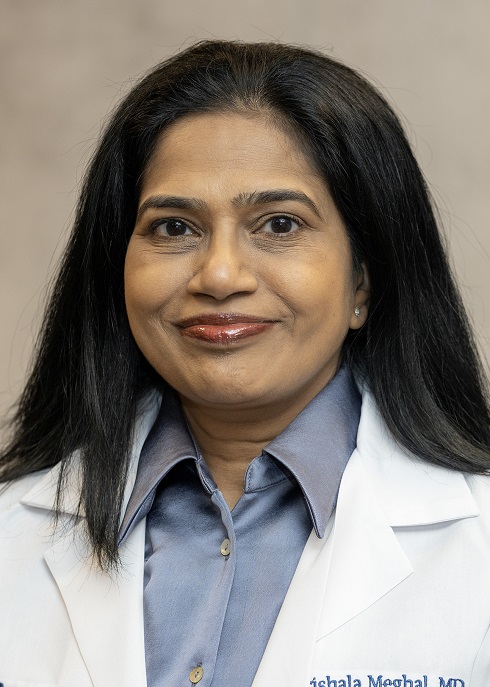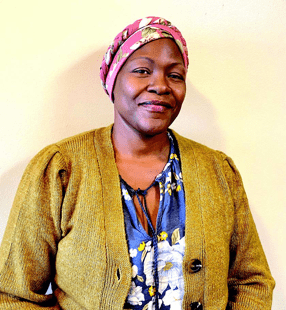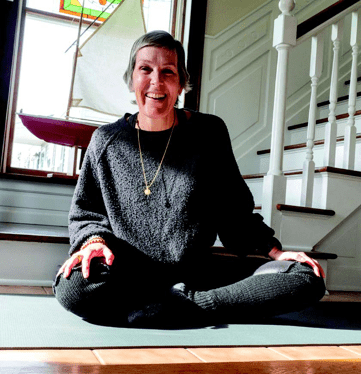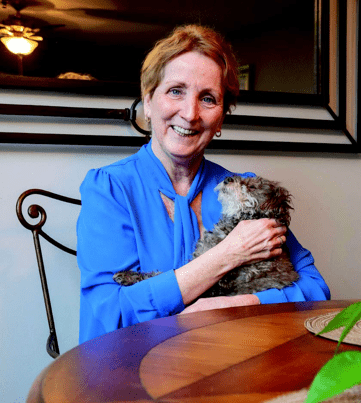With today's therapies, many women can live fuller lives during cancer treatment and beyond.
Hearing you have breast cancer is never easy. “It’s a difficult diagnosis,” says Trishala Meghal, MD, a medical oncologist at Monmouth Medical Center (MMC) and a member of RWJBarnabas Health Medical Group. “It’s especially hard for women with young children, whose first thought is about their young family.”

But as breast cancer treatments increase, women have more reason for hope—and greater flexibility, Dr. Meghal says. Many women can tailor therapies to maintain a sense of normalcy or control. For example, a medical oncologist may offer a patient facing multiple courses of chemotherapy the choice to receive a milder one first if it fits her schedule better, or adjust treatment to avoid hair loss during a child’s graduation or wedding.
“We’ve made a lot of breakthroughs,” Dr. Meghal says. “Overall prospects for breast cancer patients are good.” Here’s how three women have not only survived but thrived.
Explaining to the Children

Shondilla Edgerson, 51, a home nurse in Neptune, didn’t expect a breast cancer diagnosis despite having a BRCA1 gene mutation, which increases risk for the disease. “There’s no breast cancer in my family,” Edgerson says. “Instead, women in my family have passed away from ovarian, cervical or uterine cancer.” She’d even had a hysterectomy—surgical removal of the uterus—to help prevent such gynecologic cancers.
When screening discovered breast cancer, the tumor in her right breast was diagnosed as stage one: small, confined to her breast and less threatening than a more advanced cancer would be. But it was also triple negative, a type of breast cancer susceptible to fewer treatment options.
“I appreciated how Dr. Meghal included me in the plan,” Edgerson says. “She would say, ‘What do you think?’ about a suggested treatment, or ‘Take time to think about it.’” They settled on a course of chemotherapy and a double mastectomy to prevent the cancer from recurring.
A major concern was helping Edgerson’s 10- and 11-year-old daughters process her diagnosis. She knew her husband, Bryan, would be a tremendous support, as would family and friends. For additional ideas, Edgerson turned to the cancer center’s psychosocial support services to assist her.
“The oncology social workers are skilled in explaining to children and help them deal with a parent’s diagnosis,” Edgerson says. “I knew I would probably be too emotional trying to tell them what’s happening with Mommy.”
Edgerson decided not to hide side effects like hair loss from her girls. “I had to start letting them see that this was something serious,” she says. “As women, we need to let our kids know we’re very strong. I also wanted my daughters to know that I needed their help through my treatment and healing.”
The Power of Positivity

Cara Yakey, 55, a yoga teacher who lives in Monmouth Beach, was doing a pose on her stomach when she felt something hard on her chest. “It felt like there was a piece of gravel under my mat,” she says.
The hardness was a lump in her right breast. After a mammogram discovered abnormal cells and a biopsy was performed, Yakey was shocked to receive a diagnosis of triple negative breast cancer. But she quickly shifted focus. “There was no reason to cry or be mad,” she says. “I just concentrated on healing.”
Keeping a positive attitude helped sustain her as she went on to receive a lengthy course of chemotherapy. “I received phenomenal care from the nurses who provided my infusions,” she says.
But genetic testing revealed she was positive for the BRCA1 gene mutation, which made a recurrence more likely. With input from a multidisciplinary team that also included a breast surgeon and a genetic counselor, Yakey decided to undergo a bilateral mastectomy to remove both her breasts.
Yakey was grateful for her partner, Joe, “who was with me every step of the way,” she says. Her grown son, Lucas, lives in California, but she viewed the distance almost as another blessing, as she didn’t want him to worry. He eventually flew East to celebrate her completing chemotherapy. “We kept things light with simple normalcy,” she says—“going out to breakfast, walking the dog, enjoying mojitos in the backyard.”
She’s now well on the road to recovery. “It’s all about the team you surround yourself with,” says Yakey. “Dr. Meghal was among the first providers I met, and she said, ‘You’re going to be okay.’ I really needed someone to say that.”
Care and Support

When Marcella Crowe, 63, a retired eighth-grade teacher in Freehold, was diagnosed with breast cancer in April 2021, she knew she could rely on her large family for support. The eighth of 10 children, Crowe especially looked to her mother and sister, Joanne. “They both survived breast cancer and were great role models,” Crowe says.
Joanne, a nurse, researched the area to find the best medical team for her sister. When they met Dr. Meghal and the cancer team at MMC, they knew they had made the right choice. “I felt like they treated me as an individual, not just a patient,” Crowe says. “Dr. Meghal even gave me her personal phone number in case I had questions.”
Doctors hoped a lumpectomy would eliminate the cancer from Crowe’s body. But cancer cells were found in three lymph nodes, indicating it had spread. She needed chemotherapy and radiation to destroy any remaining malignancy.
The regimen was challenging, but Crowe got through it thanks to what she calls her four-leaf clover during treatment. “My oncologist, surgeon and radiologist were each one of the leaves,” she says. “My family was the fourth.”
The Added Benefits of Clinical Trials
If you are diagnosed with cancer, participating in a cancer clinical trial may offer you a number of advantages in addition to the standard treatment. Through MMC’s partnership with Rutgers Cancer Institute of New Jersey, the state’s only NCI-Designated Comprehensive Cancer Center, patients have access to the latest clinical trials. Potential benefits include:
- Working with top specialists who conduct research and are highly knowledgeable about the latest treatments.
- Being offered cutting-edge treatments not yet available to the general population that may help you live longer and/or improve your quality of life.
- Playing a meaningful role in a study that could help other patients in the future.
Let's Beat Cancer Together
Together with the Rutgers Cancer Institute of New Jersey, we bring a world-class team to fight alongside you, providing close-to-home access to the latest treatments and clinical trials. Schedule an appointment or call 844-CANCERNJ or 844-226-2376.
